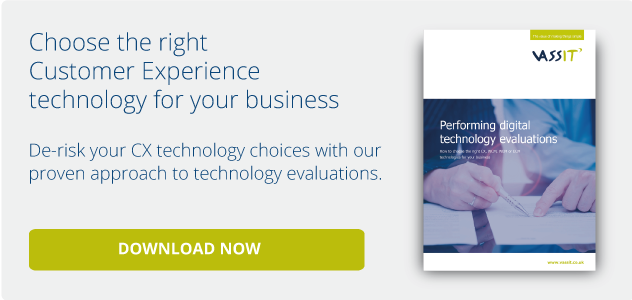The overall goal of deploying an Enterprise Content Management (ECM) system is to improve efficiency when handling information.
As with any technology investment, to ensure your ECM meets your organisation’s objectives, you must first evaluate and define your requirements, and then evaluate and define the capabilities of the products on offer.
Here are 6 ECM features you should always consider to ensure a successful investment.
1. Support of data formats across their lifetime
For an enterprise, data comes in many different forms, and content changes over the course of its lifetime. Your ECM needs to handle this. Ensure it can support all file types you use and expect to use (and more!). Built in features that enable advanced file search, automatic version control, automatic file compression, conversion and rendering and metadata customisation are some functionalities to look for.
2. Compatibility with other systems
Like all technology investments, an ECM needs to integrate with your existing and planned infrastructure. An ECM that is limited in its compatibility with your databases, storage machines, file systems and applications will cause inefficiencies.
In order for an ECM to be the backbone of your organisation, evaluate whether it can easily link up with your systems and other leading software which you could use down the line. This includes your Customer Relationship Management (CRM), Web Experience Management (WEM), Business Process Management (BPM) and content creation systems.
3. Support of business processes
Your ECM of choice should have the capabilities to support your business processes. Some processes may span numerous lines of your business, in different locations, involving people with different needs and abilities. It’s vital that you evaluate your organisations processes so you understand the functionalities you require from an ECM.
Consider features that enable efficient information movement through advanced workflow automation, collaboration tools like content review and approval, simultaneous document editing, a friendly UI and, as previously mentioned, integration capabilities with a BPM system you may be using.
4. Flexibility of content access
Work doesn’t only happen at desks anymore, so your ECM should support content access from mobile and tablet devices. The capability to serve content to a range of devices and applications will boost productivity and allow users the flexibility to work on the go. Importantly, connections with remote devices must retain security and allow for information access control.
Your ECM should also have flexible and efficient search capabilities, so you can easily find and access the content you require, as you require it. The ability to assign metatags to content for advanced data classification is a pivotal feature that enables rich search.
5. Compliance with regulations
Government and industry regulations effect all businesses. An ECM needs to support the data retention and retrieval policies that may affect your organisation at local, national, global, industry and company levels.
Features such as automated retention scheduling, access permissions, detailed audit trails and powerful search tools, allow a business to rely on its ECM to comply with regulations and avoid expensive penalisation.
6. Vendor support and stability
Your ECM provider needs to be dependable. Therefore, it’s important to evaluate a vendor’s ability to provide global technical support. They should offer extensive training programmes that are suitable for a range of technical abilities, rapid email and phone support, online educational materials and responsive networks of experts to help you in the different locations your organisation may be based.
Not only should you assess the product, but the vendor as well. The vendor needs to be able to match your commitment to its ECM, so check that they are in good financial health and have the longevity to provide support for years to come.
While these points are important, they are not the be-all and end-all of ECM consideration. Most enterprises have a set of unique needs that have to be understood. Ensure you spend enough time thoroughly evaluating your requirements, and the capabilities of an ECM and its vendor.



